Ahmet Süha Umar, retired Turkish ambassador, wrote a column on NATO’s declaration following the summit in Washington.
Based also on his own experiences, Umar observes how NATO turned out to be an organization of aggression after the dissolution of the Soviet Union. Umar discusses some possible consequences of the declaration of the Washington summit and warns Türkiye.
The column is translated from Turkish into English by UWI.
NATO allies shared a Declaration with the world after the meeting in Washington at the 75th anniversary of the Organization. The term “declare” inherently carries a tone of command or warning. Having spent nearly my entire professional life dealing with strategic-military matters and NATO-related issues, I found the Washington Declaration to be far more decisive and sterner, almost threatening, compared to its predecessors.
NATO is a defense organization!
“NATO is a defense organization!” This has been the first cliché about NATO over the past 75 years.
Indeed, NATO was founded on April 4, 1949, as a defense organization. The founding 12 countries perceived a need for defense due to the Soviet Union’s post-World War II attempts to expand its influence, particularly in Eastern Europe. Türkiye’s decision to join NATO stemmed from the Soviet Union’s abrogation of the 1925 Treaty of Friendship and Neutrality with Türkiye in March 1945 and the resulting threat perception over the Turkish Straits and the territories of Kars and Ardahan (which might be argued to continue even today). The Soviet Union and the Eastern European countries it pulled into the communist bloc formed the Warsaw Pact on May 14, 1955.
The fall of the bipolar world and the hope for a lasting peace
The existence of these two pacts maintained a “bipolar world” until the fall of the Berlin Wall in 1990, followed by the dissolution of the Warsaw Pact and eventually the Soviet Union. The world then had, for the first time in years, the chance to enter a period of peace.
The foremost condition for this peace was to remove Russia from its adversarial role and integrate it into the international community. Indeed, significant steps were taken toward this goal after 1990 such as NATO’s 15 years of “Partnership for Peace” initiative. However, this peaceful strategy shifted when the “Neo-Conservatives” came to power in the US.
The US policy shift was driven by some key factors.
The US’s new strategy
Like all empires, the “American Empire” has entered a period of decline. However, having remained the sole “superpower” for a time following the collapse of the Soviet Union, the US pursued the illusion of maintaining its empire forever.
Meanwhile, Russia recovered and with significant US support – nearly all American factories were relocated to China to exploit its cheap labor – China emerged as a quite effective economic, and in recent years, military power. Additionally, groups like BRICS began challenging the US’s economic hegemony, making it increasingly difficult for the US to exploit the world.
In response to these developments, the US shifted its strategy, first toward Russia and then China. By facilitating the NATO and EU memberships of the Baltic states and former Warsaw Pact countries, the US pursued a strategy of encircling Russia. Sweden and Finland’s NATO membership and provoking Russia to attack Ukraine, efforts to make Ukraine a NATO member are all results of this strategy.
NATO is no longer a defense organization
The Washington Declaration for the first time openly articulates the strategy that the US seeks to impose on other allies. NATO is no longer a defense organization.
Russia has been unequivocally declared an “enemy”. China is accused of supporting the “enemy” and Beijing is also warned that any attempt to harm NATO allies – whether through conventional or cyber warfare – would result in severe consequences.
NATO’s scope of interest and defense has expanded to include the Middle East, the Balkans, North Africa and even the Pacific regions such as Australia and New Zealand.
The emphasis on Ukraine in the Declaration and the support NATO intends to provide in the proxy war in Ukraine indicates that Russia’s vulnerabilities will continue to be exploited. The Declaration stresses freedom of navigation in the Black Sea, implicitly referring to US-NATO warships entering the Black Sea, which undermines the Montreux Convention. I like to think that Türkiye inserted the reference to the Montreux Convention into this section of the Declaration. If so, even though the statement in the text is incomplete, it is good.
Arms race
The Declaration details NATO’s intent to develop new weapons and further increase defense spending, which has already risen under the US’s pressure. This signifies a return to the rapid arms race which has been already started first by the US and then by Russia, dismantling the conventional and nuclear disarmament agreements prevailed in the 1980s and 1990s.
There is another aspect that closely concerns Türkiye. The Declaration expresses support for the EU’s efforts to increase defense spending and arms production, and calls for non-EU countries connected to the EU to contribute to these expenses. In other words, even if Türkiye is not and may never be a full EU member, it is being encouraged to contribute to the EU’s armament.
Arms races almost always end in war. The decisions in the Washington Declaration to increase arms and defense spending reflect not only the interests of the arms industry of the US, the UK, France and Germany, but also provide concrete evidence that NATO is preparing for a new global war or large-scale conflict.
Will NATO attack without warning?
The Declaration contains some critical sentences that, although subtly inserted in the text, reveal the seriousness of the situation and intent.
NATO will intervene or rather attack almost anywhere in the world, when necessary, at a time and in a manner of its choosing, using any weapons whether conventional or nuclear, without prior warning! In the past, there was at least a “declaration of war”. I have never seen a sentence that more clearly and explicitly states that NATO is no longer an organization for defense but for aggression.
For the reasons briefly outlined above, the US may indeed feel the need for a “Third World War” or, more vaguely, a “New Major Conflict”, which they have been preparing the ground for, particularly through the US-based think tanks.
Who picks a fight, knows how to fight
In a “cowboy” movie, John Wayne, upon hearing his friends call her to help a friend who got into a fight, said, “If he picked the fight, he knows how to fight”. Judging by its performance in Vietnam, Afghanistan, Iraq and recently in Syria, the US seems to have forgotten John Wayne’s words.
Türkiye must stay out of major conflict
The US may need a war, and at least some EU countries may see this need as justified and appropriate. But Türkiye? If we are dragged into such a major conflict just because we are a NATO member, I am afraid that we may once again face the situation we faced at the end of the First World War.
Those who claim to govern the Republic of Türkiye must act responsibly and take timely measures. Türkiye’s interests require it to stay out of the major conflict that the US-NATO may instigate. This is the real existential threat.
As a first step, Türkiye should, as I have often repeated, clearly state to its allies that it will not engage in any conflict alongside NATO unless “it is in response to an unprovoked attack within NATO territory.”
Can Türkiye’s current political, economic, and military situation allow for this? Can the country’s leaders achieve this? I have serious doubts. For this reason, I cannot look to the future with confidence.





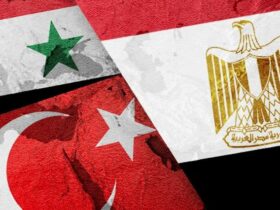

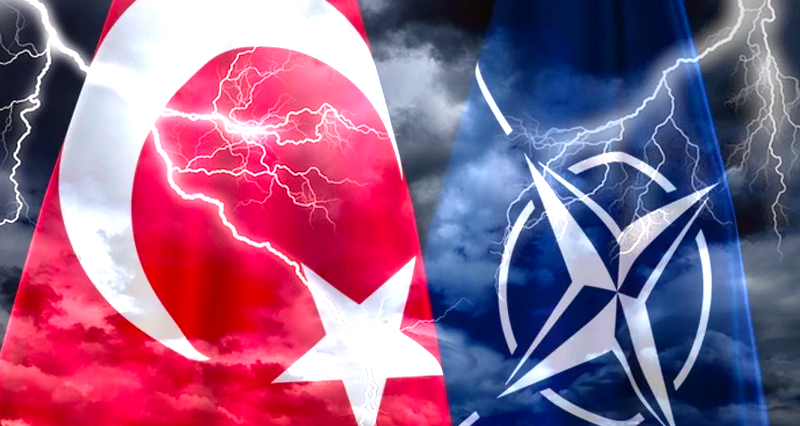
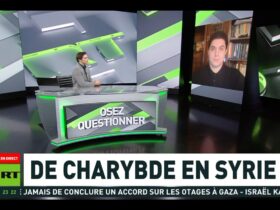
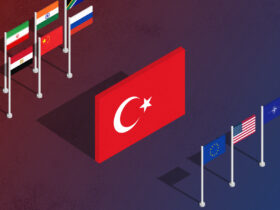
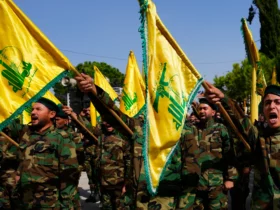
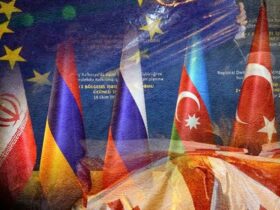
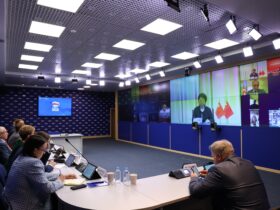

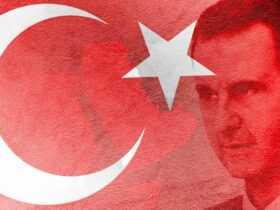
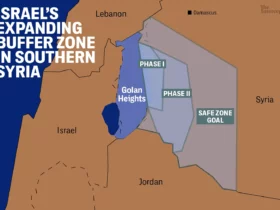

Leave a Reply